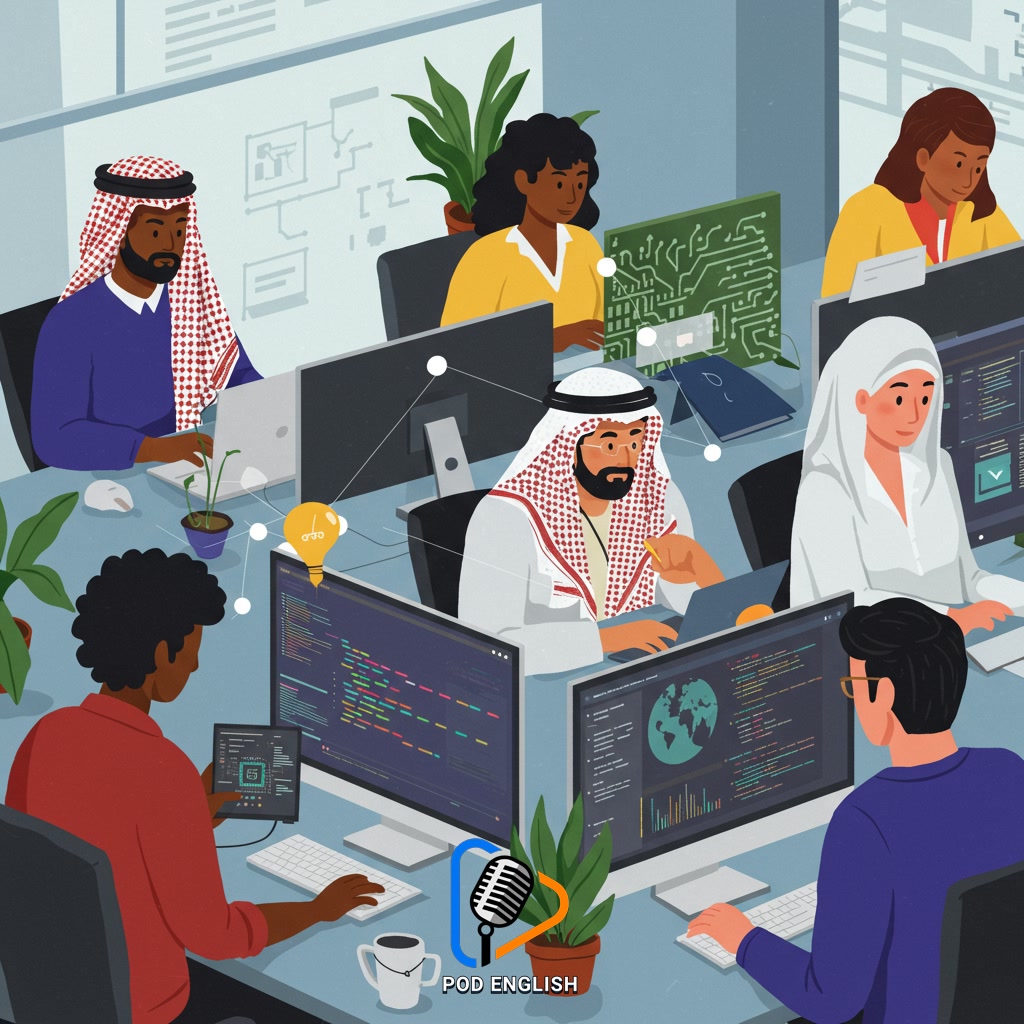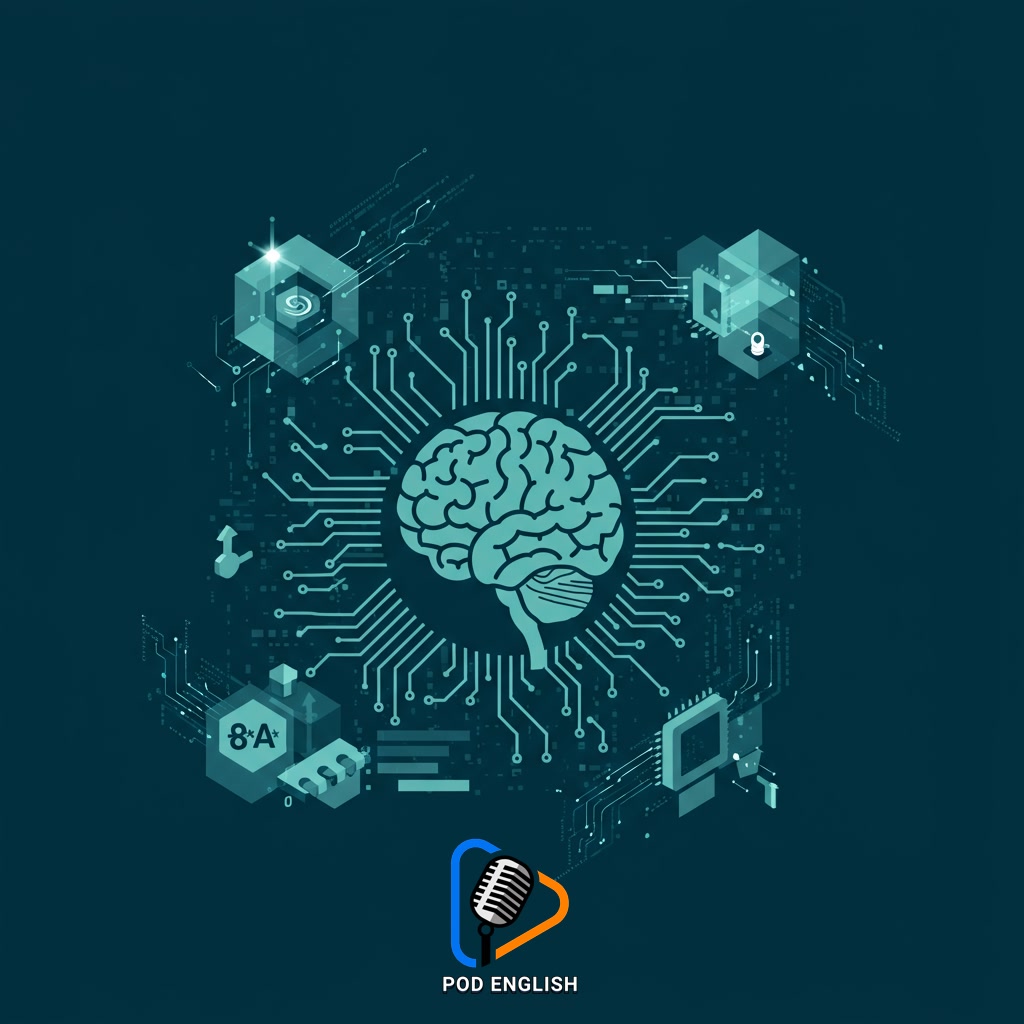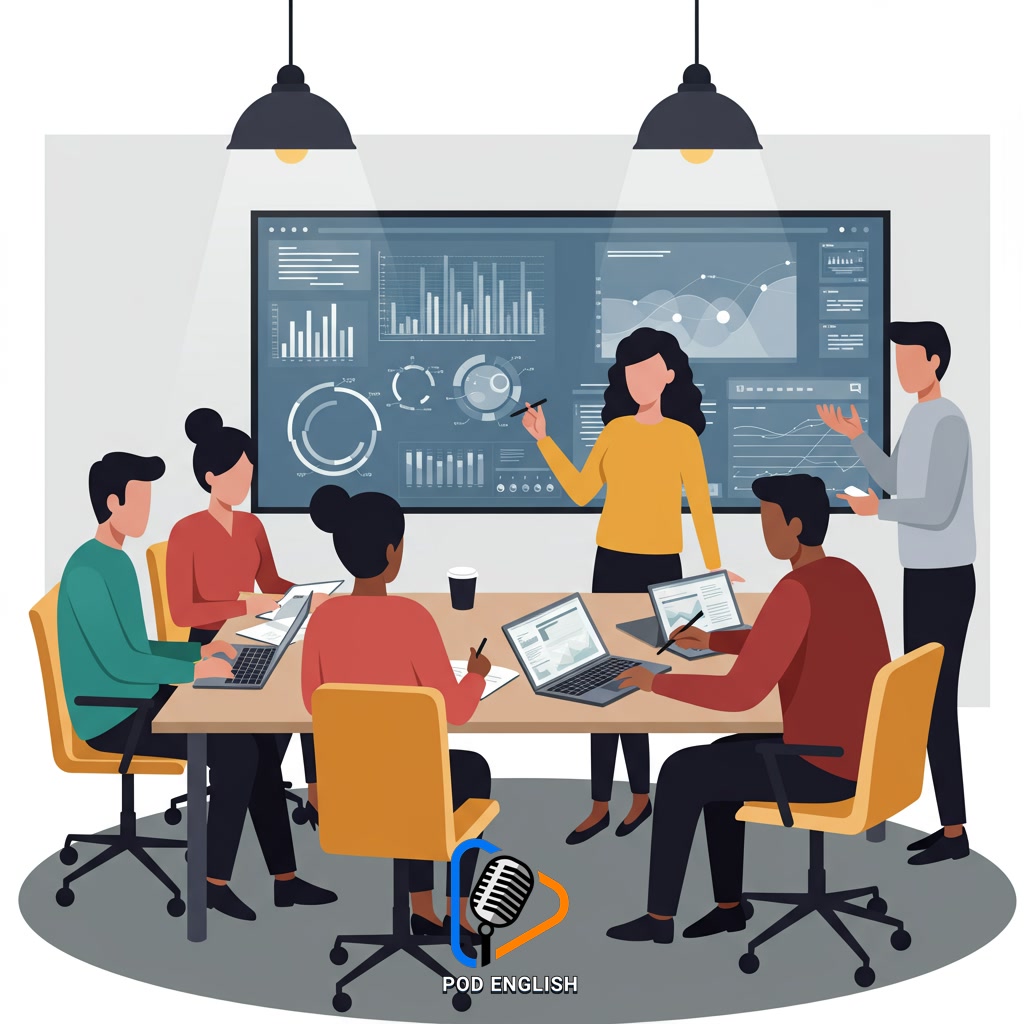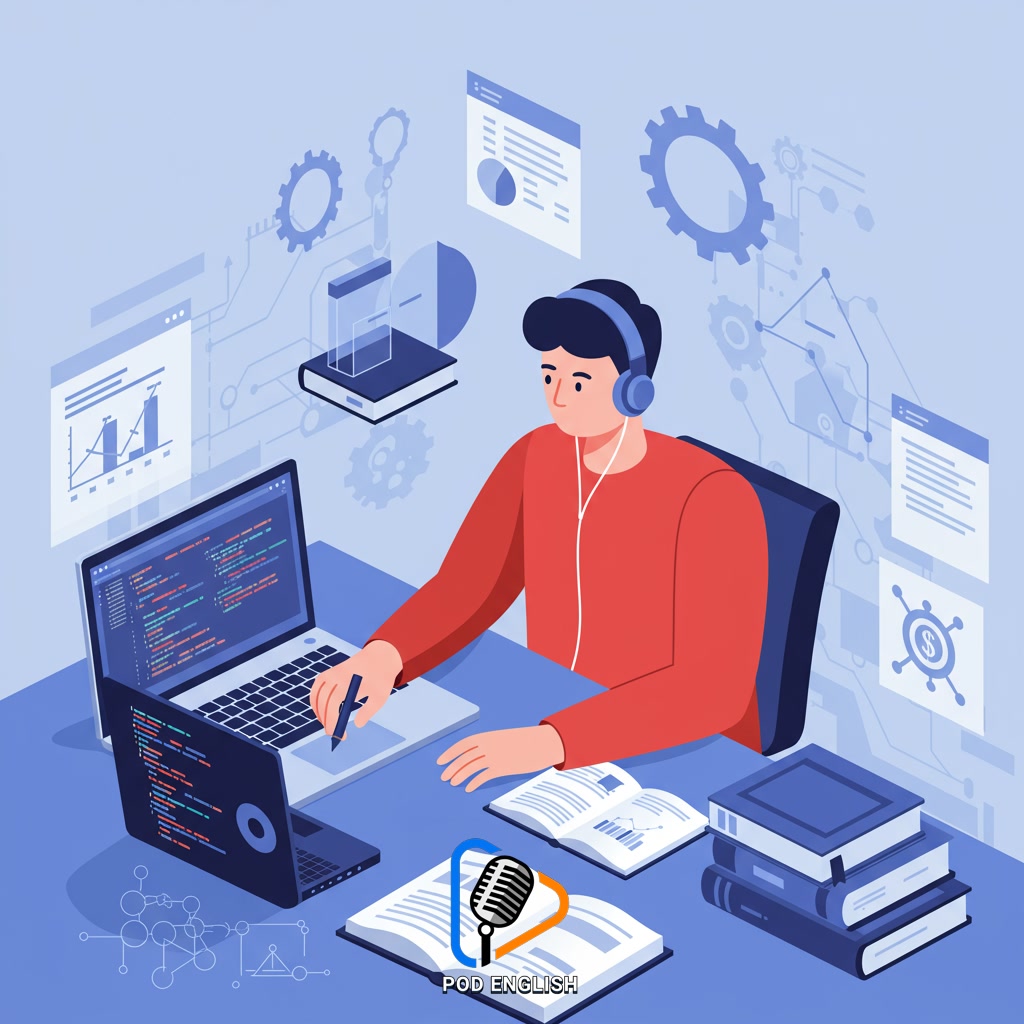Learn English
Essential English for Software Hardware Dev

This material addresses the specific English language proficiency required for professionals in software and hardware development. It aims to provide the essential vocabulary, phrases, and communication strategies necessary for effective interaction in a technical setting. Content likely covers reading technical documentation, participating in discussions, writing emails, and understanding industry-specific jargon. Acquiring these skills is fundamental for success and collaboration within the international tech community.
Table of Contents
- Section 1: Introduction: Why English is Essential for Software and Hardware Developers
- Section 2: Mastering Technical Vocabulary: Software and Hardware Terminology
- Section 3: Effective Written Communication: Emails, Documentation, and Collaboration Tools
- Section 4: Improving Oral Communication: Meetings, Presentations, and Discussions
- Section 5: Understanding Technical Resources: Reading Documentation and Listening to Tech Talks
- Section 6: Strategies for Continuous English Learning in the Tech Field
Section 1: Introduction: Why English is Essential for Software and Hardware Developers
In the fast-paced worlds of software and hardware development, English serves as the undisputed global language. The vast majority of technical documentation, programming languages, development tools, online forums, and industry conferences are conducted in English. To effectively read datasheets, understand API references, debug code using online resources, or participate in open-source projects, a strong grasp of English is fundamental. Furthermore, development teams are increasingly international, making English the primary medium for communication and collaboration. Mastering technical English not only unlocks access to a wealth of knowledge but also significantly enhances your ability to work with colleagues worldwide, share your own innovations, and advance your career in this global industry. Therefore, actively learning English is not just beneficial; it is an essential investment for any aspiring or current software or hardware professional.

Introduction: Why English is Essential for Software and Hardware Developers
Section 2: Mastering Technical Vocabulary: Software and Hardware Terminology
Building upon the understanding that English is the essential global language for technology, this section delves into the critical task of mastering the specific technical vocabulary used extensively in software and hardware development. Unlike general English, this requires dedicated learning of precise terms for components, processes, tools, and concepts unique to the tech industry. For software, this includes terms like ‘algorithm’, ‘database’, ‘API’, ‘framework’, and ‘syntax’. Hardware demands understanding words such as ‘processor’, ‘memory’, ‘motherboard’, ‘circuit’, and ‘peripheral’. Acquiring this specialized lexicon is fundamental for effectively reading technical documentation, understanding code comments, participating productively in team discussions, and writing clear technical reports or emails. It forms the core foundation for accurate and efficient communication within this specialized field.

Mastering Technical Vocabulary: Software and Hardware Terminology
Section 3: Effective Written Communication: Emails, Documentation, and Collaboration Tools
Building upon the critical foundation of technical vocabulary, this section focuses on applying those terms effectively in written communication, which is paramount for software and hardware developers. Mastering the art of writing clear, concise, and accurate emails is essential for daily interaction with colleagues, clients, and partners. Furthermore, contributing to or understanding technical documentation, such as user manuals, API references, or design specifications, requires not only precise language but also an understanding of structure and format. Utilizing collaboration tools like Slack, Teams, or project management platforms involves quick, clear written exchanges, demanding efficiency and accuracy in conveying information. Developing strong written English skills in these areas ensures that technical concepts are communicated effectively, reducing misunderstandings and fostering productive teamwork within the global tech community.

Effective Written Communication: Emails, Documentation, and Collaboration Tools
Section 4: Improving Oral Communication: Meetings, Presentations, and Discussions
Having established a solid base in technical vocabulary and its application in written formats like emails and documentation, this section transitions to the crucial skill of oral communication. For software and hardware developers, effective spoken English is indispensable for successful collaboration and problem-solving. This module focuses on strategies and language patterns essential for participating actively and confidently in various oral contexts within the tech industry. You will learn how to contribute meaningfully in team meetings, deliver clear and engaging technical presentations, and participate effectively in impromptu or planned discussions. Mastering these skills will significantly enhance your ability to share ideas, understand complex technical concepts presented by others, and build strong working relationships with colleagues and clients globally, furthering your learning journey in English for technology.

Improving Oral Communication: Meetings, Presentations, and Discussions
Section 5: Understanding Technical Resources: Reading Documentation and Listening to Tech Talks
Moving beyond basic communication, a crucial skill for software and hardware developers learning English is effectively utilizing technical resources. This involves mastering the ability to read complex technical documentation, such as API references, user manuals, and specification sheets, which are predominantly written in English. You’ll learn to navigate jargon, understand diagrams (often accompanied by English labels), and extract precise information needed for your work. Equally important is developing listening comprehension through engaging with tech talks, conference presentations, podcasts, and online tutorials. These resources expose you to spoken technical English, various accents, and current industry discussions, significantly expanding your vocabulary and understanding of how terms are used in context. Practicing these skills is vital for continuous learning and staying updated in the fast-paced tech world.

Understanding Technical Resources: Reading Documentation and Listening to Tech Talks
Section 6: Strategies for Continuous English Learning in the Tech Field
Building upon the ability to effectively read and understand technical resources, maintaining and continuously improving English skills is vital for long-term success in software and hardware development. Strategies for continuous learning include integrating English into daily tasks, such as writing code comments and documentation exclusively in English, or actively participating in online technical forums and communities where English is the primary language. Regularly watching technical presentations, webinars, or tutorials in English, even if challenging at first, helps improve listening comprehension and exposure to current industry jargon. Setting small, consistent goals, like learning five new technical terms each day or practicing describing a technical problem aloud in English, fosters steady progress. Embracing these ongoing learning habits ensures developers remain proficient and confident communicators within the global tech landscape.

Strategies for Continuous English Learning in the Tech Field













